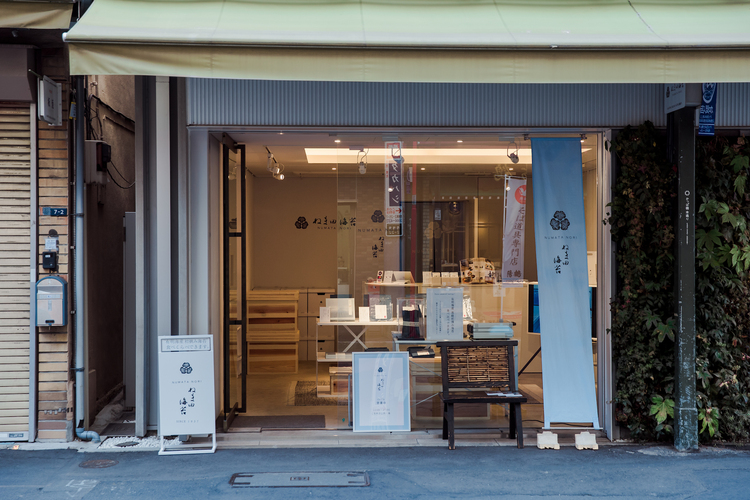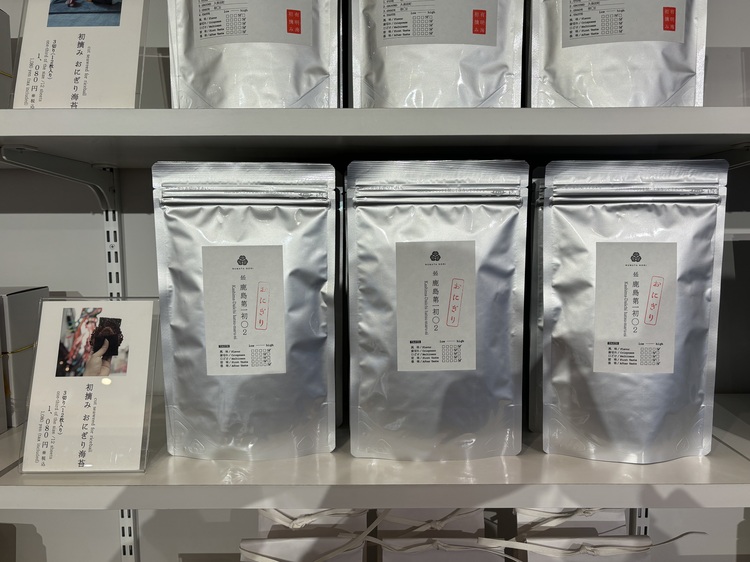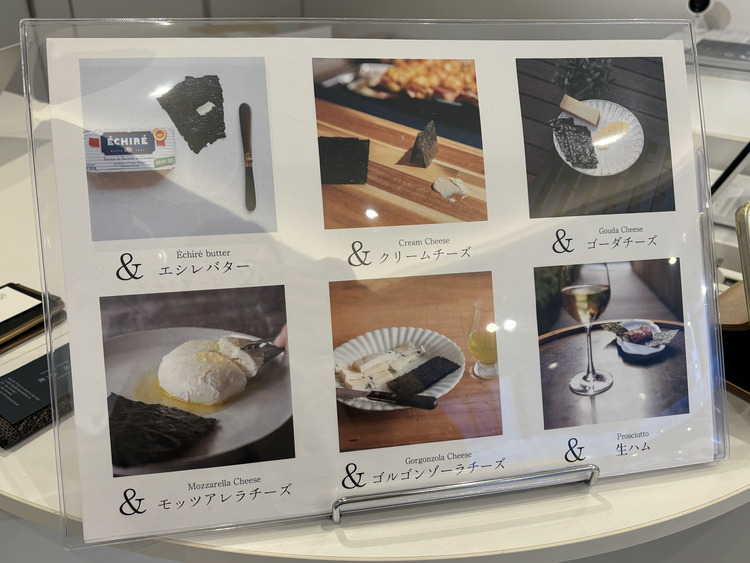ReservationSearch and reserve rooms
Click here to confirm, change or cancel your reservation
航空券付きプラン
Shinkansen accommodation plan
提携法人専用予約
2024.03.31
Learn about the unique characteristics of the seaweed grown in the Ariake Sea at Numatahinouri, a four-generation business
NEIGHBORS

Kappabashi is a popular area for domestic and international tourists as a specialty store for cooking utensils and tableware. In this area, you will find Numatanori, a shop that sells only first-picked seaweed from the Ariake Sea to convey the deliciousness of good old Edomae seaweed. Numatanori is a seaweed shop that was founded in Kawasaki in 1937. Currently in Kappabashi, the fourth-generation owner, Numata Shoichiro, carefully selects and sells only the seaweed that he feels is truly delicious.
A seaweed shop that has been in business for four generations, moving from Kawasaki to Ariake

Numatah Nori was founded in Kawasaki, Kanagawa Prefecture. When the company was first established, it sold Daishinori, a type of seaweed that was representative of Edomae seaweed harvested in Kawasaki, but as the area was developed into an industrial area, the seaweed fishing industry in Kawasaki came to an end in 1973. Numatah Nori searched for fishing grounds where they could somehow recreate a taste close to Daishinori, and since the second generation, they have been selling carefully selected first-harvested seaweed from the Ariake Sea. We asked Numata why they chose Ariake seaweed.
"If you compare Tokyo Bay and the Ariake Sea, you'll notice that the shapes of the bays are similar. Both have several rivers flowing into them and are in similar environments, so the seaweed from the Ariake Sea and Tokyo Bay has a similar texture and flavor. First-harvested seaweed in particular has a strong flavor and a soft texture, and you can really sense the individuality of each fishing ground."
Up until the third generation, the business operated a small seaweed shop in Kawasaki to regular customers, but in 2018, Numata took over and moved to Kappabashi. Insisting on selling face-to-face, the shop opened as a street-front store.
"I want more people to enjoy the delicious seaweed that I've been eating since I was a child. My mother, the third generation owner, wanted to sell it in stores again, so I thought it would be good to sell it in my mother's store for her sake."
How seaweed harvested from the Ariake Sea is put on sale at Numata Nori

Nori is made by cultivating the spores that will become nori in oyster shells, then setting up poles in the tidal flats and hanging nets to grow it. The nori grows in an environment where it is submerged in seawater due to the ebb and flow of the tides and is exposed to the sun. Fishermen carefully manage the nets, making small adjustments every day.
The harvested seaweed is washed, then crushed in a mixer, crushed by machine, and dried into sheets of nori. During the first harvest seaweed auction season, Numata-san visits the sites in Saga, Kumamoto, and Fukuoka for a week, carefully selecting the seaweed he purchases by tasting it himself.
"Even if it's seaweed from the same fishing ground and the same first harvest, the taste and texture will change depending on the natural environment of that year. We don't just judge by fishing ground or grade, we taste it to make sure it tastes good before we buy it."
Nori is traded under grade names that are determined by the fishing ground and grade, whether or not it has holes, and the thickness of the seaweed itself. At Numatano Nori, the fishing ground and grade names used at the seaweed auction site are used as the product name, so you can tell from the product name which prefecture and which river estuary the seaweed was harvested at.
"Thick, chewy seaweed has a crispy texture, while soft, porous seaweed has a melty texture that melts in your mouth. Many customers who try different types in our store are surprised by the unique characteristics of the seaweed from each production area."
Communicating the unique qualities of seaweed from Kappabashi

▲We suggest pairing seaweed with cheese or prosciutto. The characteristics of the seaweed will affect which cheese goes best with it.
The seaweed production process and the original taste of the ingredients are not very familiar to most people. Numata-san is promoting the appeal of seaweed in a way that only Numata Nori can, from Kappabashi, an area with a high level of interest in food.
"Numata Nori is a small seaweed store, so we can't mass produce or sell large-scale processed products. That's why we want to carefully sell our precious first-harvested seaweed. Ideally, we'd like to see more people decide to try some luxurious seaweed once in a while."
All of the processed products, such as seaweed for onigiri rice balls and easy-to-eat flakes of seaweed, were developed in response to customer requests. They also suggest pairings with cheese and prosciutto for overseas customers.
"Kappabashi is visited by people of all ages, and we have many foreign tourists. Some of our customers have told us that this seaweed is delicious when combined with blue cheese! We hope to broaden the possibilities for how to eat seaweed and create a new culture."

Numatanori, located in Kappabashi, conveys the charm of nori, a food ingredient familiar to Japanese people. The store was founded with the family's history of four generations and a desire to let people know about the original deliciousness of nori. When you taste the nori at Numatanori, you can feel the passion of the producers who have grown it with care.

ぬま田海苔
電話番号:050-1745-9617
住所:東京都台東区西浅草3丁目7−2
アクセス:東京メトロ銀座線浅草駅から徒歩13分
HP:https://numatanori.com/
SNS:https://www.instagram.com/numatanori/
※営業時間や定休日についての詳細は上記のリンク先にてご確認ください。




